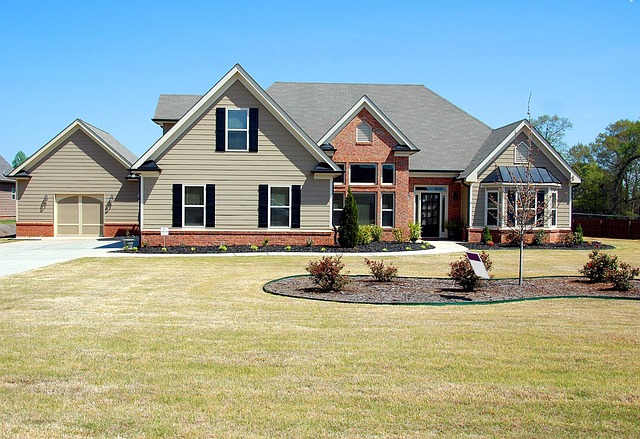Mastering Home Valuation: Key Factors and Tools to Calculate Your Property's Worth
Whether you're considering selling, refinancing, or simply curious, knowing the current value of your home is essential. Let's dive into the key factors and methods for determining your home's worth, including the latest tools and tricks to get an accurate estimate.

What Are the Top Tips for Assessing Home Worth?
Assessing your home’s worth accurately requires a systematic approach that considers both quantitative data and market conditions. Start by gathering essential property information, including square footage, lot size, number of bedrooms and bathrooms, and the age of your home. Document any recent improvements, such as kitchen renovations, new flooring, or updated HVAC systems, as these can significantly impact value.
Research your local market by examining recent sales of similar properties in your neighborhood. Look for homes sold within the past three to six months that share similar characteristics with your property. Online platforms like Zillow, Redfin, and Realtor.com provide valuable data, but remember that automated valuations are estimates and may not capture unique features or recent market shifts.
Consider hiring a professional appraiser for the most accurate assessment, especially if you’re refinancing or involved in legal proceedings. Professional appraisals typically cost between $300 and $600 but provide comprehensive evaluations that consider all relevant factors affecting your home’s value.
How Does Understanding Market Impact Affect Your Home’s Value?
Market conditions play a crucial role in determining home values, often overriding individual property features during significant market shifts. In a seller’s market, where demand exceeds supply, home values typically increase as buyers compete for limited inventory. Conversely, buyer’s markets, characterized by abundant inventory and fewer buyers, often lead to declining or stagnant home values.
Economic factors also influence market conditions and home values. Interest rates affect buyer purchasing power – lower rates generally increase demand and drive up prices, while higher rates can cool market activity. Local economic health, including employment rates, population growth, and new business development, directly impacts housing demand in your area.
Seasonal trends affect market dynamics as well. Spring and summer typically see increased activity, potentially leading to higher valuations, while fall and winter markets may be slower. Understanding these patterns helps homeowners time their valuation assessments and real estate decisions more strategically.
What Role Does Location Play in Home Pricing?
Location remains one of the most significant factors in determining home value, often accounting for 50% or more of a property’s worth. School district quality heavily influences property values, with homes in highly-rated school zones commanding premium prices. Even modest homes in excellent school districts often outperform larger properties in less desirable educational areas.
Neighborhood characteristics significantly impact pricing, including crime rates, walkability, access to amenities, and overall community desirability. Properties near parks, shopping centers, restaurants, and public transportation typically maintain higher values. Conversely, proximity to industrial areas, busy highways, or environmental hazards can negatively affect home prices.
Future development plans in your area can also influence current valuations. Proposed infrastructure improvements, new shopping centers, or planned residential developments may positively impact property values, while industrial projects or increased traffic patterns might have negative effects.
How Do Renovations Impact Your Home’s Overall Value?
Not all renovations provide equal returns on investment, making it crucial to understand which improvements add meaningful value. Kitchen and bathroom renovations typically offer the highest returns, often recouping 60-80% of renovation costs in increased home value. These improvements appeal to most buyers and significantly impact daily living experience.
Energy-efficient upgrades, including new windows, insulation, and HVAC systems, increasingly influence home values as buyers prioritize lower utility costs and environmental sustainability. Smart home technology, such as programmable thermostats, security systems, and automated lighting, also adds contemporary appeal that younger buyers particularly value.
However, highly personalized renovations may not translate to increased value. Luxury upgrades that exceed neighborhood standards, unusual design choices, or improvements that reduce functionality can actually detract from home value. Focus on renovations that enhance livability while maintaining broad market appeal.
Using Comps to Determine Worth: A Practical Approach
Comparable sales, or “comps,” provide the foundation for accurate home valuations by establishing market benchmarks for similar properties. Effective comp analysis requires selecting properties that closely match your home’s characteristics, including size, age, condition, and location. Ideally, use sales from within a half-mile radius that occurred within the past three to six months.
When analyzing comps, adjust for differences between properties. If a comparable home has an additional bathroom or updated kitchen that yours lacks, subtract the estimated value of those features from the comp’s sale price. Similarly, if your home has superior features, add appropriate value adjustments.
Professional valuation services offer detailed comp analysis with greater accuracy than automated estimates. Real estate agents provide comparative market analyses (CMAs) at no cost when considering listing your home, while professional appraisers conduct comprehensive evaluations for a fee.
| Service Type | Provider | Cost Range | Key Features |
|---|---|---|---|
| Professional Appraisal | Licensed Appraisers | $300-$600 | Most accurate, required for refinancing |
| Real Estate Agent CMA | Local Realtors | Free (with listing consideration) | Market-focused, good for selling decisions |
| Online Valuation Tools | Zillow, Redfin, Realtor.com | Free | Quick estimates, limited accuracy |
| Home Inspection | Certified Inspectors | $300-$500 | Identifies value-affecting issues |
Prices, rates, or cost estimates mentioned in this article are based on the latest available information but may change over time. Independent research is advised before making financial decisions.
Understanding your home’s value requires combining multiple approaches and data sources for the most accurate assessment. Market conditions, location factors, property improvements, and comparable sales all contribute to determining worth. While online tools provide convenient starting points, professional evaluations offer greater accuracy for important financial decisions. Regular monitoring of your home’s value helps you make informed decisions about improvements, refinancing, or selling while ensuring you maintain realistic expectations about your property’s market position.




